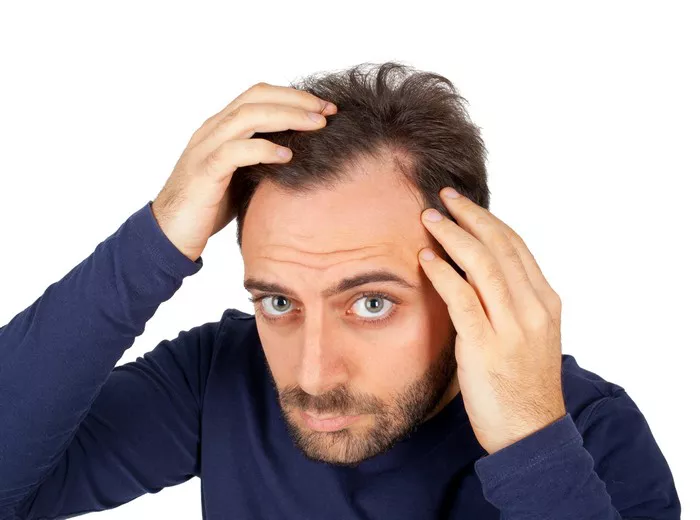Hair loss is a common concern that affects people of all ages and genders, whether it’s a few strands falling out in the shower or the onset of a receding hairline. Dr. Oyetewa Oyerinde, an expert at Baylor College of Medicine and the director of the Skin of Color Clinic, sheds light on the reasons behind hair loss and offers insights into why you need not panic over it.
“It is normal to lose between 50 and 100 strands of hair every day,” notes Dr. Oyerinde. Fortunately, there are numerous preventive measures to minimize hair loss.
Hair loss can be attributed to various factors, including nutritional deficiencies, genetic conditions, hormonal imbalances, certain medications, autoimmune disorders, infections, stress, or the natural aging process. Alopecia is the medical term encompassing all types of hair loss, and anyone experiencing increased shedding or the emergence of bald spots is dealing with different forms of alopecia.
The most common form of progressive hair loss is androgenetic alopecia, known as male- or female-pattern hair loss. In men, this typically manifests as hair loss on the crown and frontal scalp, potentially leading to complete baldness in those areas. In women, androgenetic alopecia often results in overall thinning, especially around the central part, with complete baldness being a rare occurrence.
“If you have a family history of hair loss, it increases the chances that you will experience it as well,” adds Dr. Oyerinde.
Apart from genetic factors, external influences can also contribute to hair loss. Stress-related hair loss, known as telogen effluvium, often occurs around three months after a significant stressful event, such as childbirth, and can take six to nine months for hair to naturally regrow. Inadequate protein or calorie intake and rapid weight loss can also trigger hair loss.
Traction alopecia is another type of hair loss resulting from continuously wearing tight hairstyles like ponytails, braids, cornrows, or locs, which can damage hair follicles. While these styles are acceptable on occasion, repeated use can lead to hair loss. Additionally, various styling products and chemical treatments can harm hair follicles.
Dr. Oyerinde advises, “A good rule of thumb is that if you experience any pain after putting a style in place, then hair loss is possible.”
Thankfully, there are strategies to mitigate hair loss and promote hair regrowth. A well-balanced diet, proper hydration, and sufficient sleep play crucial roles in preventing hair loss. Dr. Oyerinde also recommends avoiding damaging practices like chemical treatments, excessive heat applied to the scalp, and tight hairstyles, especially if you’re already experiencing hair loss.
When lifestyle adjustments aren’t sufficient, individuals may explore topical minoxidil for hair restoration. This medication can stimulate hair growth and slow hair loss, particularly in cases of androgenetic alopecia. Some evidence suggests that rosemary oil can aid in hair regrowth, although results may take longer to manifest, and it may not be effective for all types of hair loss.
If readily available treatments prove ineffective, dermatologists can offer alternative approaches, such as injections, prescription topical medications, and oral treatments. In severe cases, hair transplantation may be considered. This surgical procedure involves relocating hair from a donor area to areas with thinning or hair loss.
Dr. Oyerinde emphasizes the importance of seeking professional help early, saying, “Time is hair” in the hair loss community. Early intervention provides a higher chance of hair recovery and preventing further loss. Consulting a board-certified dermatologist, especially one specializing in hair loss, is crucial when experiencing hair loss symptoms.


